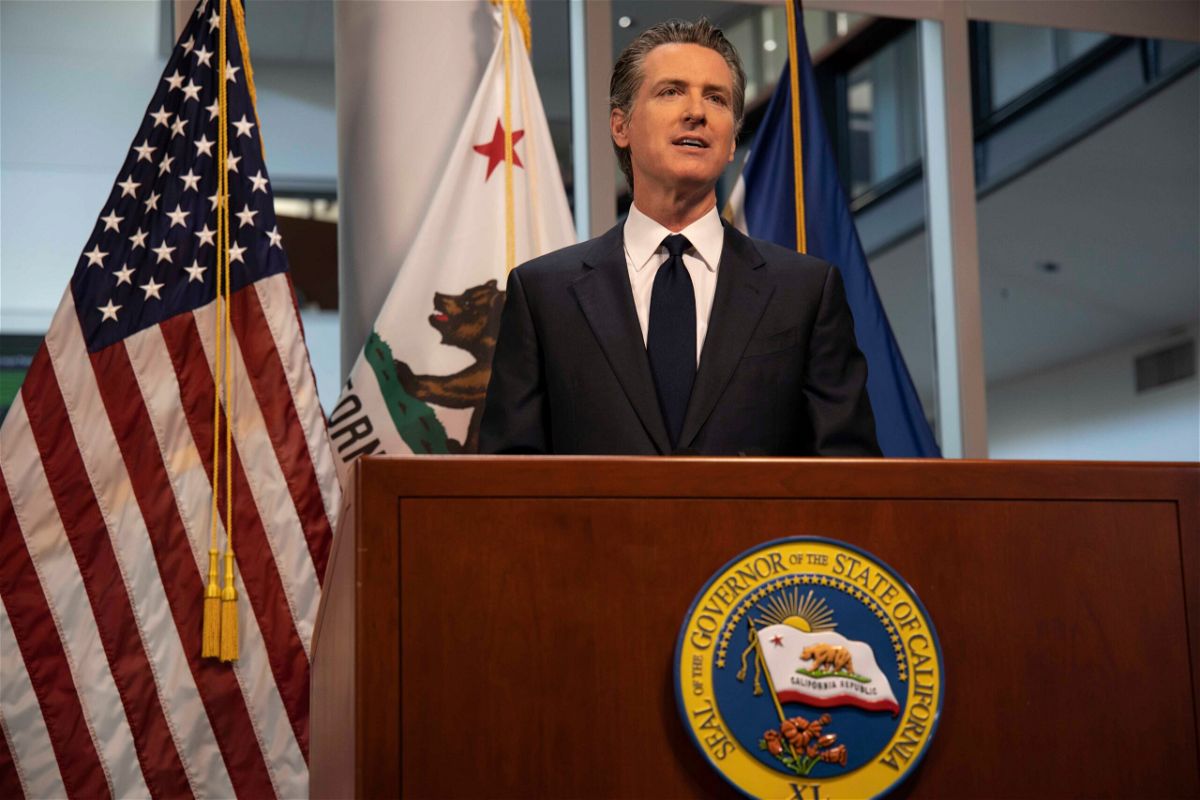California governor nominates 1st gay to state Supreme Court

SACRAMENTO, Calif. (AP)
UPDATE 10/5/2020 12:30 p.m. Gov. Gavin Newsom nominated the first openly gay Black man to the state Supreme Court on Monday, potentially replacing one of the court’s more conservative members with a former federal civil rights attorney who prosecuted cross-burnings and police misconduct cases under President Ronald Reagan.
Martin Jenkins, 66, would be the court’s first gay member and the third Black person to serve on it, according to the governor’s office. Jenkins called the appointment “surreal” during an interview with The Associated Press. He said his sensibilities and experiences as a gay, Black man would strengthen the court.
“At times those sensibilities are relevant to the resolution of a case and at times they are not,” he said. “I think having a Supreme Court that has a range of voices that arise from a range of different experiences, I think, produces a better end product, a fuller end product, a more robust and well considered end product.”
Jenkins must be confirmed by the Commission on Judicial Appointments, which consists of Chief Justice Tani Cantil-Cakauye, Attorney General Xavier Becerra and the most senior presiding judge of the Court of Appeal.
Jenkins would replace Justice Ming W. Chin, the court’s first Chinese American justice who was appointed in by Republican Gov. Pete Wilson in 1996. The court has two other Asian American justices, including the chief justice.
“The people of California could not ask for a better jurist or kinder person to take on this important responsibility,” Newsom said.
Jenkins grew up in San Francisco, the son of a stay-at-home mom and a dad who was a clerk and janitor at the city’s iconic Coit Tower. He lived in a two-bedroom, one bathroom house and attended Catholic school. He said he wasn’t poor but noted the family did not have a lot of disposable income.
“There is a portion of folks who live like that in this country, maybe more now that live below the poverty line than in the ’50s and ’60s when I was coming up,” he said.
He played football at Santa Clara University, where he was a team captain and dreamed of playing in the NFL. But his coach, George Patrick Malley, noticed his good grades and suggested he go to law school. Malley introduced Jenkins to his friend, Eugene Lynch, who was a judge and became Jenkin’s mentor. When Lynch retired as a federal judge nearly 20 years later, Jenkins replaced him.
“It was solely the head football coach who saw something in me that I didn’t,” Jenkins said.
After graduating from the University of San Francisco School of Law in 1980, Jenkins worked as a prosecutor for the Alameda County district attorney’s office before joining the U.S. Department of Justice as a civil rights attorney.
Since then, he’s been appointed to four different judgeships by Republicans and Democrats. A pair of Republican governors appointed him to state judgeships before Democratic President Bill Clinton made him a federal judge in 1998. He left that job in 2008 when Republican Gov. Arnold Schwarzenegger appointed him to the state Court of Appeal.
Jenkins retired last year to become judicial appointment secretary for Newsom, helping him vet judicial appointments.
Jenkins would not describe himself as conservative or liberal, saying “I don’t land on labels.” He noted one of the state Supreme Court’s key roles is to decide death penalty cases. But when asked to discuss his views on the death penalty, a spokesman for the governor’s office intervened and said Jenkins would not answer that question.
Newsom imposed a moratorium on the death penalty last year.
“I try to approach the law openly,” Jenkins said. “I basically have a great fidelity to the law and respect for it and try to resolve it in ways that are reflective of what makes so much sense and doesn’t make sense in a way people live their lives,” he said.
He pointed to two cases that he says best reflects the way he analyzes and interprets the law.
He ruled female employees had the right to sue WalMart in what would have been the largest class action lawsuit in history. And he ruled AT&T could not keep women from using their time off during pregnancy in calculating their pension benefits.
The U.S. Supreme Court overturned Jenkins in both cases.
“I wasn’t happy with the outcome, but I think they reflect the way in which I try to look at law and analyze legal issues,” he said.
PREVIOUS STORY: Gov. Gavin Newsom is providing an update on the state's response to wildfires and the COVID-19 pandemic, but the Office of the Governor said he is also expected to make a "special announcement."
Cal Fire reports that there are 23 major wildfires and one extended attack wildfire around the state. 26 new fires were reported Sunday, and all but one were fully contained. More than 4 million acres have burned so far this year.
According to the California Department of Public Health, there were more than 823,000 confirmed COVID-19 cases statewide. 16,120 people have died.